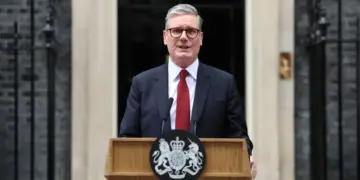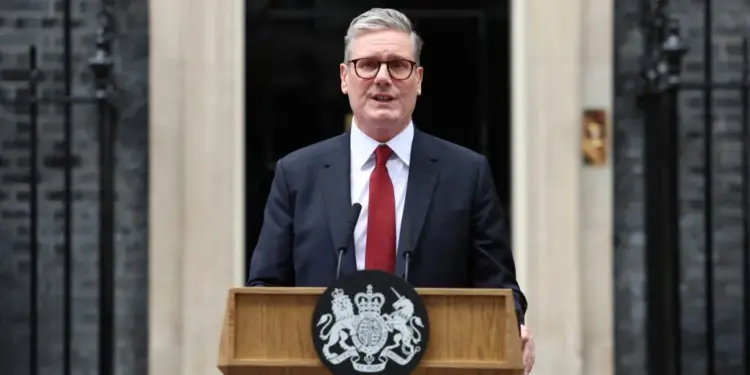By Emmanuel Nduka Obisue
Britain’s Home Secretary Shabana Mahmood on Sunday defended sweeping reforms to the country’s asylum system, insisting that irregular migration is “tearing our country apart” and must be urgently addressed.
The proposals, inspired by Denmark’s highly restrictive model, are aimed at curbing the rising number of migrants crossing the Channel in small boats from northern France, a persistent political flashpoint that has fuelled support for the anti-immigrant Reform UK party.
Mahmood rejected suggestions that the Labour government was adopting far-right rhetoric, telling the BBC that the push to overhaul the asylum regime was “a moral mission” to restore public trust and cohesion. “I can see illegal migration dividing communities,” she said.
Under the current system, refugees receive five years of protection before becoming eligible for indefinite leave to remain. The Home Office now plans to cut that initial status to 30 months, subject to regular review, and require refugees to wait 20 years before applying for permanent residency. Refugees would also be expected to return home once their countries are deemed safe.
The reforms include creating “safe and legal routes” for “genuine refugees”, which would operate through capped work and study programmes. The measures form what officials describe as the “largest overhaul of asylum policy in modern times”.
Asylum claims in Britain reached a record 111,000 applications in the year to June 2025. Ministers argue that the new system will reduce the appeal of irregular migration and make it easier to remove those without a right to remain.
A key component of the reforms is a benefits crackdown. The statutory obligation to provide housing and weekly financial support for asylum seekers, introduced in 2005, would be scrapped. Assistance would become discretionary, allowing the government to deny support to those deemed capable of working or those who commit crimes.
Prime Minister Keir Starmer’s government has been under intense political pressure to reduce Channel crossings, which have already surpassed 39,000 arrivals this year, higher than the total for 2024 but below the 2022 peak.
The Refugee Council condemned the plans as “harsh and unnecessary”. Its chief executive, Enver Solomon, said the measures would not deter dangerous crossings. “They should ensure that refugees who work hard and contribute to Britain can build settled lives and give back to their communities,” he argued.
France welcomed the move, with Foreign Minister Jean-Noel Barrot saying that migrants risk the perilous crossings because Britain’s reception conditions are “more permissive”. He added that Paris had long urged the UK to align its policies with European standards.
The UK reforms closely mirror Denmark’s approach, where residency for refugees is granted in one-year renewable blocks and where authorities proactively encourage returns once home countries stabilise. Family reunification in Denmark is also subject to strict conditions, including language tests and financial guarantees.
The proposals are expected to face resistance from left-leaning Labour MPs who fear the party is drifting rightward and risking support from progressive voters.




































